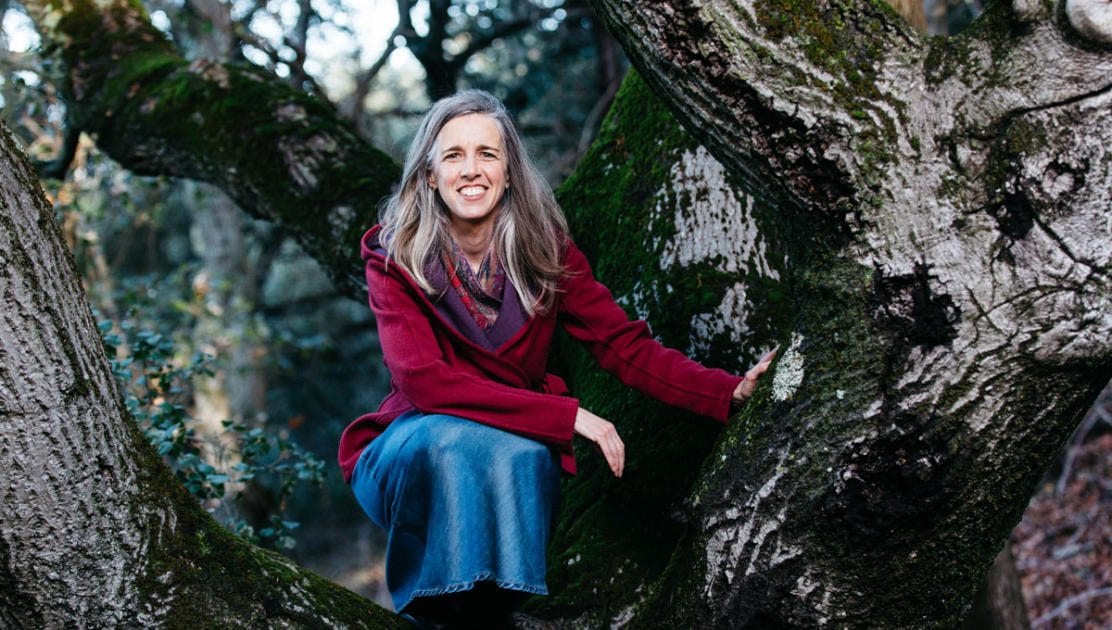Living Without Division
The Open Gate Sangha is holding their annual silent retreat at the Garrison Institute on July 8-13, 2018
By MuktiWhen experience is shaped by thought, one’s predominant perspective is that of a self and world divided into shoulds and shouldn’ts, rights and wrongs, desires and aversions. Questioning this paradigm of living through the lens of divided thought can give way to our natural state, the ever-present mystery of being — free of judgment, lack, fear, and separation. You are invited to join Mukti for the Open Gate Sangha five-day silent retreat, which will be devoted to this undivided state.
The following transcript is from a lecture given by Mukti at a 2009 retreat entitled “The End of Suffering.” Read on to sample her experiential and didactic teaching style, which compliments her other presentation styles of personal accounts, stories, dialogues, and guided explorations.
Previously we touched on the topic of “nonduality.” That is knowing, not on the level of mind, but a knowing of a different order — through consciously being what you are. That is a sense of existing right now, a sense of life looking out your eyes, and life feeling through your senses into this experience, this space of the room, this place. It’s like we are a sense apparatus for raw life, raw consciousness, which feels through us as instruments with five or more senses. What is sensed registers in awareness — this knowingness of existence, this knowingness that is existence itself. This knowingness may express inside as if to say, “I exist.” Existence is very mysterious; sometimes “I don’t exist” describes it more accurately, especially in the absence of self-referencing thought.
Earlier I spoke of suspending the tendency to reference thought, feeling, or emotion — in particular when it comes to the sense of what you are. This is a wonderful practice. In fact, it was a homework assignment that Adyashanti gave the first year that he was teaching, and which I ask you to deeply consider now: Who would you be without referring to a thought, feeling, or emotion to tell you who you are, to tell you what you are?
Asking this question makes you stop, right? Often inside there are all of these self-referencing patterns: “Oops, can’t go the thought route; oops, can’t go the feeling route; oops, can’t go the emotional route; oops, oops, oops.” Then you can feel cornered. Then the opportunity is to sense what it is to be stopped.
From that perspective that doesn’t reference thought, feeling, or emotion, can you feel how your existence would interact differently with certain beliefs, even a juicier one like “Life didn’t turn out the way I thought it would?” Even something really disappointing, or really difficult, or even violent, would not ruffle your ever-present nature. Can you feel how it’s not ruffled — that it doesn’t get pulled off-balance because it doesn’t take sides to begin with? It doesn’t camp in any side to begin with, so when a position is asserted in thought, it doesn’t come up with an opposing side.
If you’re interested in understanding struggle, what I’m talking about is really fundamental. To see this perspective, to know it, to really saturate yourself in knowing your natural state that is always available underneath dualistic positions of mind — and that’s available when you suspend referencing thought, feeling, and emotion — is to discover that that natural state is inherently unequipped to struggle, to seek, or even to reference time. It doesn’t operate in terms of here or there. In seeking, we’re trying to get here or trying to get there, and then our thoughts are in the future. This natural awareness is already functioning now, looking out of your eyes, and when not referring to a dualistic pattern of thought, is actually incapable of mental struggle.
Could you be bold enough even to ask if this natural awareness is what you are? Is it familiar? Does it have an age? Has it been with you? Has it ever not been with you? This fundamental sense of life, existence, is awake to all the comings and goings of experience — experiences of being a person who likes this and likes that, who has a gender, an age, and roles. Your whole sense of self could revolve around all of these relative knowings of identity, or it could actually shift out of these thoughts into a remembrance — as if to say, “Ohhh, before I knew anything about myself, this was here — this knowingness of existence.” Can you feel how different your sense of self is, in this remembrance? Are you following me? Are you really checking it out?
The more you shift your investment out of the checking account of “me” into the savings account of awareness, the richer you become. Transferring your investment is transferring your energy (the energy of your psyche) and transferring your attention. The more you transfer your investment out of all the ways that you try to know yourself through your identities, your beliefs, your conclusions, your positions of mind — and allow the energies to return to this sense of fundamental, aware being — the more your appetite turns to living without division.
Before registering for room and board, please register for the program here.
To register for room and board at the Institute for the five-day silent retreat from July 8-13, 2018 with Mukti, please register here.
Mukti founded the Open Gate Sangha with her husband, Adyashanti, in 1996. Previously, Mukti studied the teachings of Paramahansa Yogananda for over 20 years.
